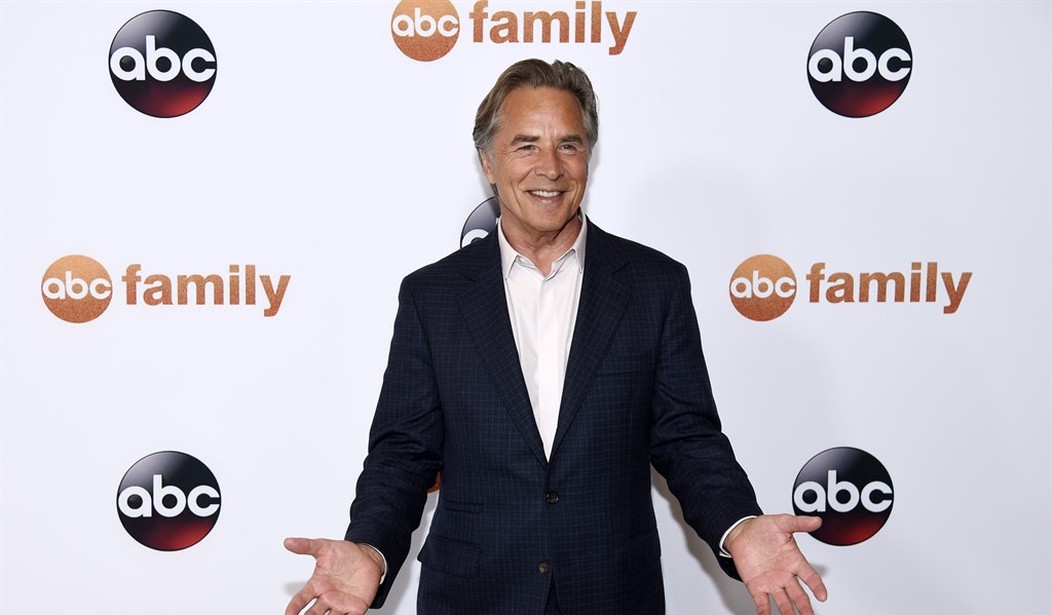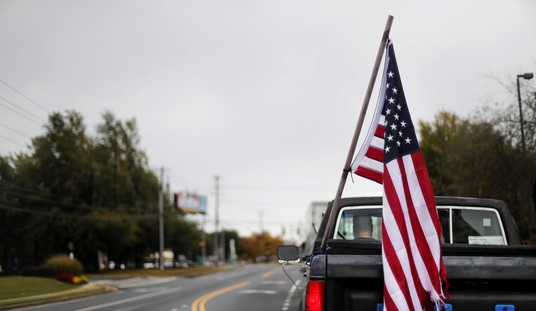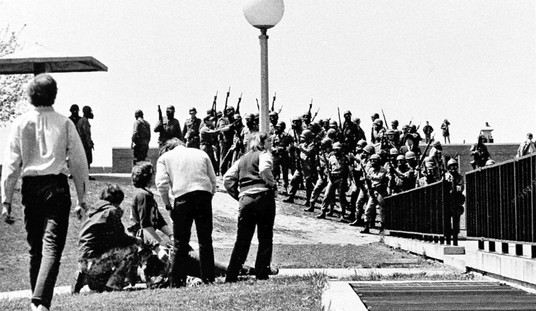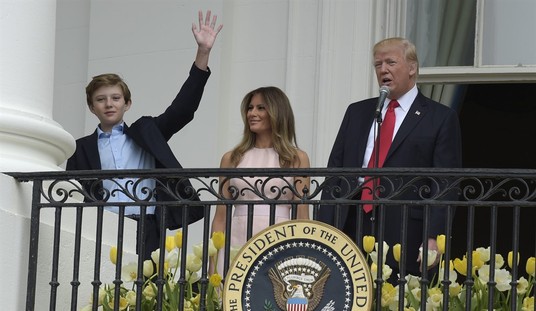In 2003, during the very early days of the now moribund Blogcritics website, I interviewed Jan Hammer, the brilliant composer and sound designer behind the theme song and much of the sound track for TV's Miami Vice (Starring Don Johnson, pictured above) during its run on NBC from 1984-1990. Since that article is no longer online, here’s a lightly-edited reprise:
Since emigrating to the US from Czechoslovakia in the late 1960s, Jan Hammer has been playing keyboard professionally in the US for over 35 years, beginning with a year on the road with Sarah Vaughn, followed by a stint in the early 1970s as a founding member of The Mahavishnu Orchestra, one of the first, and arguably, one of the greatest of all jazz-rock fusion groups.
Hammer spent the 1970s and early 1980s playing with his own group, and with guitarists Jeff Beck, Al Di Meola, and Neal Schon. But it was in the 1980s, where he achieved his fame as the composer for Miami Vice, a TV show that both captured-and created-the flashy zeitgeist of the 1980s. Working alone in his Connecticut recording studio, Hammer composed an episode's worth of new music each week. Combined with Vice's liberal use of hit rock and pop songs, his music set the tone of the show, often making episodes greater than the sum of their parts. In 2001, the TNN cable network began rerunning episodes of Miami Vice. Deluged with requests on his Website, in 2002, Hammer released a two CD set of Vice music, in response. It's with this new disc that we began our half hour telephone interview with Hammer.
Ed: Why did you decide to release the two-disc Miami Vice: The Complete Collection last year?
Jan: It was something that was at the back of my mind for a long time, because I knew that there was unfinished business there, and a lot of good music that should be heard. But I think the tipping point came once we started my Website, and people realized that they could sort of let me know how they feel about not being able to hear all this music.
Believe it or not, there were people out there who would tape the episodes, and just records the snippets of the score that they could hear [without dialogue and/or sound effects], and then cut together their own mixes. And they were just telling me about "this episode", and "this theme", and when "this or that happens" and all of a sudden, there were all these messages coming in, and I realized that this really made sense, and I had to do it.
Ed: I think that Elliot [Elliot Sears, Hammer's manager—Ed] mentioned that MCA wasn't too thrilled with the idea of a Miami Vice soundtrack, 12 years after the show went off the air.
Jan: No, it's not that. They're just too big to even care. In the end, if it's presented to them like, "OK, you stand to make some money on this", [hearty laugh], then they say, "sure". As long as they don't have to do it. Because they've just gotten so concentrated on immediate, next quarter returns and singles. You know, that's all the record companies do now, besides being buys going out of business eventually, because CD is not going to be the viable thing that it used to be-it's all going to be online.
In the interim though, there's still room for a few CDs to be out there, so we just took it upon ourselves to put it out on our own.
Ed: How is it selling?
Jan: It's doing great—it's really wonderful. For me, it's a long-term thing. Again, I'm not obviously looking at singles, or anything like that.
Ed: But when Miami Vice was on, you actually got several number one singles from the instrumentals, right?
Jan: Yes, which is wonderful. I just wish that there was more room for instrumental music, but [singles] are basically all nothing but vocals. It's always been that way. You just break through once in a while with something, and I came around at the lucky moment, when there was so much innovation happening, and so fast, as far as the sounds, themselves, you know what I mean? When I came out with some of the stuff, it was just sounds that were just totally otherworldly. By now, they're fairly common-it's not as unusual to hear all these different sounds. And samples: samples were really just starting to happen at this time, and it sounded unlike anything that people had heard. And I have to say that it was a combination of that, and some of my melodic ideas also struck a chord. So because of those two, it became really popular.
Definitely Miami
Ed: How did initially you hook up with the producers of Miami Vice?
Jan: I was working on another movie that wasn't that great-so it's not even worth mentioning. I had some time to kill, and a friend of mine said, "Let's drop by and visit Michael Mann." He had been aware of other stuff I've done; from my records. So we went over to his office at 20th [Century Fox], and he was there with Thomas Carter, the director of the pilot, and they were just beginning to actually get the thing off the ground. This was like early '84, and they were still casting, nothing was shot yet, and Michael just started saying that he would like to make sure that this "doesn't sound like TV". [chuckle] I understood exactly what he meant, because I was one of the people who just got sick of it. I mean, how many times can you do the same run of the mill, white bread TV score? And I had some sketches on a cassette, and I just played him a few things, and one of the things that I played was a just about finished version of the theme.
He heard it, and both him and Thomas loved it, and then I still wrote a few more things, just to try some things, but we ended up going to the original [theme song], that was written even before I met them.
Ed: How did you decide what the show would sound like? Was there a certain tone or style you were going for?
Jan: I would say that the signature sound for the theme, and for the primary thematic material for the pilot was all pretty much based on what I was into at the time. You know what I mean? I wasn't like a conscious decision where I thought, "Well, I'm going to make it sound like this."
That was the kind of music I was making at the time, and it just really worked, because it had this sort of a dark edge, and it was driving. But it also had a very rhythmic element including percussion like congas and things, which really fit nicely with the whole idea of Miami, and the whole Latin culture, and how the pulse really works there.
From there it really branched out into...you name it. There were episodes that were very much jazzy. And then there were episodes that had a much more hard rock, distorted feel. And it just went back and forth from that to more classical shaped things. And I was able to do every week, basically a different approach.
To me, that was just an ideal situation, because I'm always way, way all over the map. And it can be drawback, if people want to pigeonhole you, and especially for marketing people: they really don't know what to do with me-I was always a nightmare. once you get a trademark thing that you're known for, you're expected to do it over and over until the day you die. And I'm just not really capable of doing that. And that's why I've had so many sorts of nine lives in my musical career, starting as a totally straight, acoustic jazz pianist, with Sarah Vaughn.
Whatever Works
Ed: When you were doing the TV show, you were doing all that solo, right?
Jan: That's right.
Ed: Had anybody recorded a TV soundtrack solo before?
Jan: I would doubt it, because the technology wasn't there, until you had the Fairlight, where you really had the whole pallet of sound, and also, I was really able to use it, because I've not only a keyboard player and a drummer, and my solo playing was closely linked to a guitar sound, and a guitar approach. So with those three things, you pretty cover the whole spectrum. And there's not many people who can do those many different instruments, and make them work.
Ed: Was everything done with synthesizers, or did you use acoustic instruments as well?
Jan: Well to me, sample collections are acoustic instruments, so that would count as one. And on the other hand, I did use some drums, some percussion, and for instance, some of the rhythm guitar, I actually played on a guitar.
Ed: I think I read the theme song has some real guitar on it.
Jan: Oh yeah. There were more things, but that's the one that you can hear it: the chugging, distorted rhythm guitar. That's a live Strat.
Ed: Now the lead guitar melody on the theme song-that was played on keyboard I assume.
Jan: That was my sort of a trademark sound.
Ed: How difficult was it recording all of those new pieces of music each week?
Jan: It was pretty...hairy...at moments! [Big chuckle] It was a load of work, and the pressure was amazing. It got me worried here and there, but thanks to the freedom that I was allowed, I was able to work through it. I think it would have been much harder if I was under a microscope and had somebody looking over my shoulder and bugging me and micromanaging me.
What really happened after the pilot was that Michael Mann told me to in his words, "just run with it."
And what that meant was that I would just get the raw episodes without any music, except for the songs that they had placed in them already—whatever the pop songs of the week were. And then I could just watch the show and place the music where I wanted, and place whatever I want there. So I was left totally on my own, and that really helped under pressure.
Ed: So they never said, "Well, this piece doesn't work", or "this wasn't what we had in mind".
Jan: No. The only directions that I ever got—I don't know if it was halfway through the second year, where I would talk to Michael, and he would say, if anything, add even more music.
Ed: How did you match up the timing of the music with the images?
Jan: Well the first year, I had to do it all wild, on the fly, because I didn't even have a professional video deck that I could synchronize. I was just running it on VHS, with a stopwatch, and I would just play along with the videotape rolling free. So it was all trial and error in the first year, and that was pretty hard.
But at the end of the year, I was able to get a professional deck, and a synchronizer, and at that point, I was able to get the 24 track tape recorder, and the video deck locked up through a synchronizer, and it was like night and day: things got really easier. It became a repeatable thing, where you could rewind the videotape and everything [the music and video] starts where it should.
Ed: Well if there was a particular sting, or something you wanted to tightly match up with an image, how did you let the producers know?
Jan: I wrote detailed notes to the music editor, and we were on the phone constantly.
Ed: Did they Fed Ex you an episode each week? How did you send the finished music back?
Jan: Well, once the series got into its run, Fed Ex was not fast enough, so we had to actually use couriers. And couriers would bring me the video, and then once I was done, I would call up, and they would come pick up and take it to the next plane to L.A. Because Fed Ex was just too late.
I think these days, you can get Fed Ex to pickup and deliver like a courier service, but was not available in 1984.
Ed: Around the third season, there were several episodes that featured a great sounding acoustic guitar sample. How was that created?
Jan: I don't know who created it, but I got it from Fairlight. It was from their library [of samples], and I use it to this day. And I have tons and tons of other guitars sampled at a much higher bit rate and everything, but that one is just wonderful. Actually, it's not that low in quality, because it was from the Fairlight Series Three, so it was 16-bit at that point. So it is a high quality sample, and it's just very organic, and responds to playing-to nuances from [keyboard] playing so well. So I was able to use it, and again I use it to this day.
Escape from Television
Ed: You left the show in the middle of the fourth or fifth season. What made you decide to leave?
Jan: I wanted to leave after the third season. Again, there was another producer who was running the show, and I was getting sort of burned out. I was approaching episode #66 at this point, and you get drained. But also, I was not happy with the mixes, the music was sometimes buried, where it never was before-it was really featured, in the second season, especially. In the third season it got a little spotty. So I just said "enough".
Plus I had offers to do other things. I wanted to sort of branch out and do more features, and whatever.
And they came back and offered me...a lot of money. And as Marlon Brando once said, I didn't have the moral fortitude to turn it down [chuckle]. And that's what happens in TV land: If they want you, they'll get you. So I stayed for a fourth year. Actually, in the fourth year, I collaborated with John Peterson in the middle of the season, where he took over a little while. He took over for a while, but most of it was using my already established thematic material. But I did the beginning of the season, and then I did some of the ending [ratings] sweeps episodes.
Back In the World
Ed: What did you do after leaving Miami Vice?
Jan: I did a couple of solo albums. One was called Snapshots that came out in Europe, and was just now released here in sort of a remastered version (called Snapshots 1.2). And I did an album called Escape From Television, which was some music from the show, and some music that was original. And I still played live.
Ed: You worked with Jeff Beck, right?
Jan: I worked a lot with Jeff, and played on other people's records, and I still played a lot of live, with my own band.
Ed: Was it hard to get back to playing live, after all of the soundtrack stuff?
Jan: I did some of that, but my heart really wasn't in it that much. I did some gigs, but it just was not the right the thing to do. I had pretty much gotten sick of it by the end of the '70s, and then playing again... I really like the studio better. So the last time I really was out was in 1991, I think. I got together with the late, great Tony Williams, my very favorite drummer of all time. So we went out and did a summer tour. That was it. Other than a few TV things, I haven't played live since.
Ed: What was it like working on the Beyond The Mind's Eye DVD?
Jan: It was again, another total left turn. It just came out of left field, and it enabled me to do something's totally different from scoring a live-action TV series. I don't know how to describe it, but there's a relationship between a beautiful electronic sound, sort of a very adventurous synthesized electronic sound, and the computer imagery, the graphics. The grain relates in a direct way, much more than let's say for writing music for human actors, you know? That connection was a revelation for me, and I really enjoyed the novelty and newness of it.
Today, the graphics have gotten much better, and I don't get that anymore-that same connection is not there. But it was that initial connection that I made when I was doing that, that really amazed me, and I really enjoyed that.
Ed: Your music for Beyond The Mind's Eye seemed to be much more harmonious and tranquil sounding than your Miami Vice material. Was that strictly to match the visuals, or was your music in general changing?
Jan: Yeah. As we grow older—and wiser—hopefully, hopefully we mellow out, and I think that's happened to me. I still like to do something very intense here and there, but for most of the time, I like the subtle stuff that's almost pretty to listen to, and a certain amount of beauty. Sound has to have some sort of a beauty for me to be able to enjoy it, and to be able to appeal to me.
Snapshots (of Technology)
Ed: When Miami Vice was on, I remember reading an interview with you in, I believe, Keyboard magazine where you discussed the Fairlight, the Minimoog, the DX-7 and the 24 track. Is that still your basic approach, or are you more computer based?
Jan: I think that by the time that Miami Vice ended, the computer/MIDI sequences started really working well. I really jumped on Opcode immediately once it started out, and I was like one of their people, testing their Vision Sequencer, and Studio Vision, and all that. So I switched completely from the multitrack. Everything moved into Midi, and then Midi and audio combined, within the Mac.
Ed: I was going to ask, what do you think of hard disk recording and software-based synthesizers?
Jan: I live by it—it's all I do. I don't work with tape at all, and I haven't, for I guess, a decade.
Ed: But it sounds like you will use a hardware-based synthesizer from time to time, right? Jan: Yes. But they're all Midied together. You know what I mean? As opposed to recording the sounds onto the tape, and then mixing, I use them as virtual instruments that only get mixed only in the final mix, onto a DAT or a hard drive.
Ed: What made you decide to launch your own Website? How has it been received?
Jan: I don't know! Elliot would probably be much better to answer that question. But it seems like I've had it forever, but it's probably just a few years. It's somewhere there: between forever, and a few years! It's fun, it's been really great to have that, because it's like a meeting point where everyone can find me. It's surprising how many people, from every corner in the world, to get in touch.
Ed: Is it hard to keep up with new technologies-or new computer technologies?
Jan: I wouldn't say it's hard. It's always been natural for me, because I've always been very curious, and part of me is very much a geek, as far as getting into to it. I like the whole process of working with the computer, using it as a tool. I like the tool itself, and that comes from almost exclusively from working with a Macintosh. I can't help it, it's just so beautiful.
Ed: What do you think of synthesized music today?
Jan: Every once in a while, I hear nice production behind some pop song, when it's really done well. There are nice things, but as far as overall, it's not that I don't listen, but I don't listen that much to other people's music. I listen to classical music, I listen to old, really classic jazz. By classic, I mean '60s.
Ed:Miles Davis, John Coltrane.
Jan: Yeah, Coltrane, Miles Davis, that stuff—and Bill Evans—I listen to that. And every once in a while, I hear something on the radio, and there will be a song that turns my ear, and then I realize that the rest of CD is really sort of filler, and it just happens over and over. And I'm sure that's why people don't want to buy CDs.
Cool Runnin'
Ed: What's next in your career?
Jan: As far as specific things right now, I just finished a six-hour mini-series for the BBC called Red Cap, a military crime drama. They've been renewed for a second season, so I'll probably do that later this year. Other than that, I've been recording my son, Paul Hammer for his own CD. He plays guitar, piano, drums, sings.
Ed: Are you going to guest on it?
Jan: No. I just want him to do it, and he's perfectly capable, so that's what I've been working on for the past two weeks. But he's in school at NYU, but when he's got a break, he comes up and he we work on it, and it's been fun.
Ed: One last question, and then I'll let you go: Any advice for someone who wants to break into soundtrack work?
Jan: That's a tough one. I think that you have to really love it, believe in yourself, and I think you have to move to do L.A.! [Chuckle]
Ed: So you don't recommend doing what you did, and do it out of Connecticut!
Jan: Even when I was doing it, nobody else was doing it. It was strictly because an arrangement between me and Michael Mann, who was give me the freedom, and he trusted me enough to do it. But people in general, who are in charge of TV shows-or film (producers and directors)-they really want to be right on top of you. Because they don't believe that you can come up with anything good enough unless they supervise you. [They think that] by them supervising you, they make it better. It sounds stupid, but that's how it is.









Join the conversation as a VIP Member